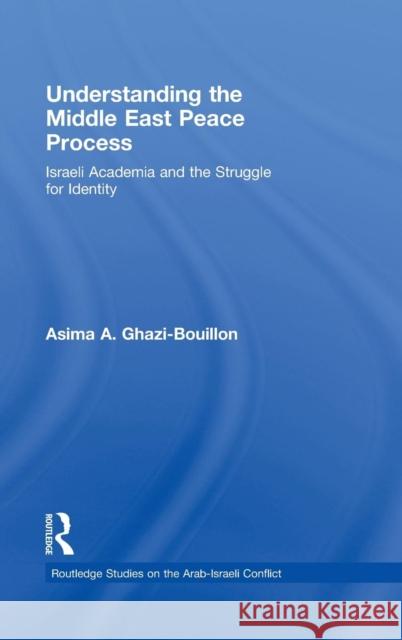Understanding the Middle East Peace Process: Israeli Academia and the Struggle for Identity » książka
Understanding the Middle East Peace Process: Israeli Academia and the Struggle for Identity
ISBN-13: 9780415775977 / Angielski / Twarda / 2008 / 232 str.
Understanding the Middle East Peace Process: Israeli Academia and the Struggle for Identity
ISBN-13: 9780415775977 / Angielski / Twarda / 2008 / 232 str.
(netto: 743,28 VAT: 5%)
Najniższa cena z 30 dni: 705,23
ok. 16-18 dni roboczych.
Darmowa dostawa!
Tracing the evolution of the Israeli academic debate over history, politics, and collective identity, Understanding the Middle East Peace Process examines the Middle East peace process since Oslo and follows the discursive struggle over Israeli collective identity. Based on interviews with key protagonists, this book gives a detailed analysis of the interrelatedness of academic debate, societal discourse, and collective identity against the background of major political events in Israel. It charts the ascendancy and expansion of post-Zionism, outlines the emergence of neo-Zionism from the political right, and the re-appropriation of Zionism in light of the new political climate of peace-making. Ghazi-Bouillon provides a new perspective on the failure of the New Historians to revolutionize Israeli intellectual life and the failure of post-Zionism to revolutionize Israeli political life, whilst assessing neo-Zionism's potential to do both.
Tracing the evolution of the Israeli academic debate over history, politics, and collective identity, Understanding the Middle East Peace Process examines the Middle East peace process since Oslo and follows the discursive struggle over Israeli collective identity.
Based on interviews with key protagonists, this book gives a detailed analysis of the interrelatedness of academic debate, societal discourse, and collective identity against the background of major political events in Israel. It charts the ascendancy and expansion of post-Zionism, outlines the emergence of neo-Zionism from the political right, and the re-appropriation of Zionism in light of the new political climate of peace-making.
Ghazi-Bouillon provides a new perspective on the failure of the New Historians to revolutionize Israeli intellectual life and the failure of post-Zionism to revolutionize Israeli political life, whilst assessing neo-Zionism’s potential to do both.











